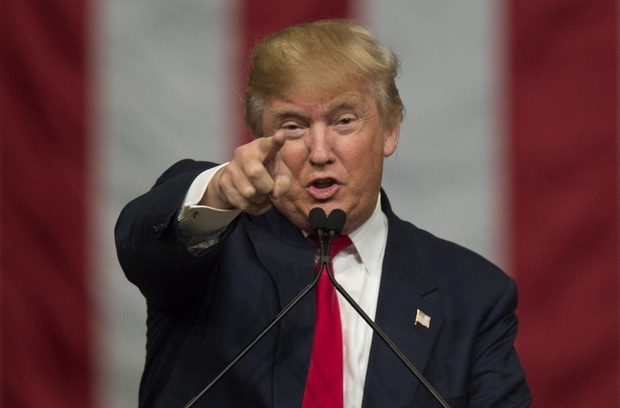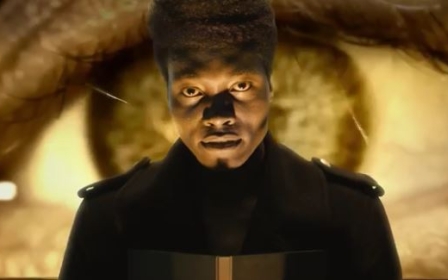Trump promises to 'unify' US, but his actions suggest otherwise

President-elect Donald Trump told Americans on Thursday that he will "unify" the nation after a bruising election campaign, as he prepared for his inauguration the following day at the US Capitol.
"We're going to unify our country," Trump told a crowd of thousands in front of the Lincoln Memorial after a pre-inauguration concert.
"We're going to do things that haven't been done for our country for many, many decades," he added. "It's going to change. I promise you."
But as his inauguration looms on Friday, many have wondered whether he can bring the US together after his bombastic and contentious campaign.
Trump has repeatedly employed anti-Muslim rhetoric while on the campaign trail and has appointed people who have espoused anti-Muslim views to senior White House positions.
Julia Shearson, who is also the executive director of the Cleveland Chapter of the Council for American-Islamic Relations (CAIR), told Middle East Eye back in July that she vacillated between being mesmerised by his seductive promises and being horrified at his scapegoating.
In early December, more than 300 Muslim organisers and leaders across the US issued an open letter to Trump, urging him to denounce Islamophobia.
"It is deeply concerning that you have announced the appointment of individuals to your upcoming administration with a well documented history of outright bigotry directed at Muslims or advocating that Muslims should not have the same rights as their fellow Americans," the letter read. "We urge you to reconsider and reject such candidates."
As for Trump’s picks to run his administration and transition team, Katharine Gorka was named to Trump's national security transition team and has rejected calling Islam a religion of peace.
"It is deeply concerning that you have announced the appointment of individuals to your upcoming administration with a well documented history of outright bigotry"
Stephen Bannon, the former chief of white nationalist website Breitbart, is Trump's chief strategist. Michael Flynn, who has proclaimed that fear of Muslims is not irrational, was named as national security adviser with KT McFarland, who has called for profiling, as his deputy.
Foreign policy
Trump’s foreign policy has also been roundly criticised for its lack of concrete details, as has his bumpy transition to power.
During his campaign, Trump said he would "bomb the s**t" out of the Islamic State (IS) group and claimed to have a secret plan to quickly defeat the group.
He gave no details, but he said he will convene his top generals and "give them a simple instruction: They will have 30 days to submit to the Oval Office a plan for defeating" IS.
Trump has also said he plans to relocate the US embassy in Israel to Jerusalem from Tel Aviv in a controversial move bitterly opposed by Palestinians as a unilateral action while the status of the city remains contested.
Trump spokeswoman Kellyanne Conway last month told a US radio channel that moving the embassy was a "very big priority" for the president-elect.
Trump has also nominated David Friedman, a supporter of Israeli settlements in the West Bank, as his ambassador to Israel.
In a Trump transition team statement last month, Friedman said he wanted to work for peace and looked forward to "doing this from the US embassy in Israel's eternal capital, Jerusalem".
US officials have said that the president-elect's national security transition has been more chaotic than others in recent memory, with important positions unfilled and many of his people less able, or willing, to engage on substance.
The uncertainties surrounding Trump's personnel, policies, and rise to power have rattled many of America's allies, including Japan, Germany and Britain, at a time when China is more assertive, Russia more aggressive, terrorism more diffuse, the Middle East still unstable and North Korea nuclear-armed and unpredictable, said US and foreign diplomats.
During the 2008-2009 transition, a US official told Reuters, incoming and outgoing officials had worked together on issues "in a very harmonious fashion."
"None of that is the case in this transition," he added. He said that he had expected to have met by now with his likely replacement or others on the transition, but had not. "It's not just me. Everybody's experience is like mine."
New MEE newsletter: Jerusalem Dispatch
Sign up to get the latest insights and analysis on Israel-Palestine, alongside Turkey Unpacked and other MEE newsletters
Middle East Eye delivers independent and unrivalled coverage and analysis of the Middle East, North Africa and beyond. To learn more about republishing this content and the associated fees, please fill out this form. More about MEE can be found here.




